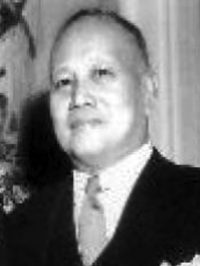Confesor, Cabili and Kalaw are out of the Cabinet. Their appointments would have been disapproved in the Commission on Appointments anyway, for justifiable reasons. The three are temperamentally unfit for such high positions. They are not only unprepared for such important responsibility but their prestige among the people is very low. They have done a great dishonor to our country in that they have done the most to divide us with their blind and indiscriminating prejudice against those who held any kind of position in the former regime. According to them, all those people are traitors to their country; that the only patriots are those who ran to the mountains and stayed there, those who issued emergency notes Like Confesor and Kalaw, or who did not join the government because the “buy and sell” business was more profitable. The Commission would have disapproved the appointments of the three with a full and public exposition of the reasons. Osmeña sensed trouble brewing. He immediately withdrew the appointments of Confesor anc Cabili, and appointed them to the Rehabilitation Commission in the U.S. Kalaw was made a book collector in the U.S.A. These are strictly political appointments. What can Confesor and Cabili do? Instead of helping they will prejudice the mission entrusted to the Rehabilitation Commission since that requires not only ability, but above all tact, moderation, and subtleties of diplomacy. These two men absolutely lack these qualities. As to Kalaw, isn’t it degrading that an ex-member of the Cabinet will merely be a book collector, a work that any instructor in a University can do? The worst part of it is that poor Juan de la Cruz is always the victim. The three men must be getting the salary of a Cabinet Member in addition to per diems and many other allowances of officials detailed abroad. How can we convince the people that we have the welfare of our country at heart?
Such action is weakening Pres. Osmeña. It may cost him the presidency. The general remark is that he is not using his appointing power judiciously.
It is also suggested that debts incurred during the Japanese occupation be revalued as of the date the debt was incurred. I think this is also a private matter which should be left to the courts. Furthermore, in almost all cases, the estimated value of the military note in the future had already been taken into consideration. I know for instance of a ₱100,000 indebtedness for which the debtor will pay only ₱5,000, but in Philippine currency at the time payment.
It seems that some banks refused to admit as security all real estate acquired during the Japanese occupation. This is a wrong attitude. If the owner has a Torrens Title, that should be enough for any bank to grant credit. If the guarantee is sufficient, the bank will not lose anything having acquired interest in good faith. But again this is a matter that should be left to the courts to decide. The buyer in good faith must be protected; on the other hand, sellers in bad faith must not be allowed to take advantage. The Chamber of Commerce has asked for a definition of the policy stating that unless this is settled rehabilitation would be difficult. The Chamber is right, since the amount of real estate transactions during the Japanese occupation was enormous.
Many more questions like this will arise in view of the decision of Judge Dizon that all court proceedings during the occupation are invalid. These cases should be appealed to the Supreme Court for final ruling. It is of transcendental importance. The Judge himself was aware of it as he suggested that an act of Congress validate such proceedings.
